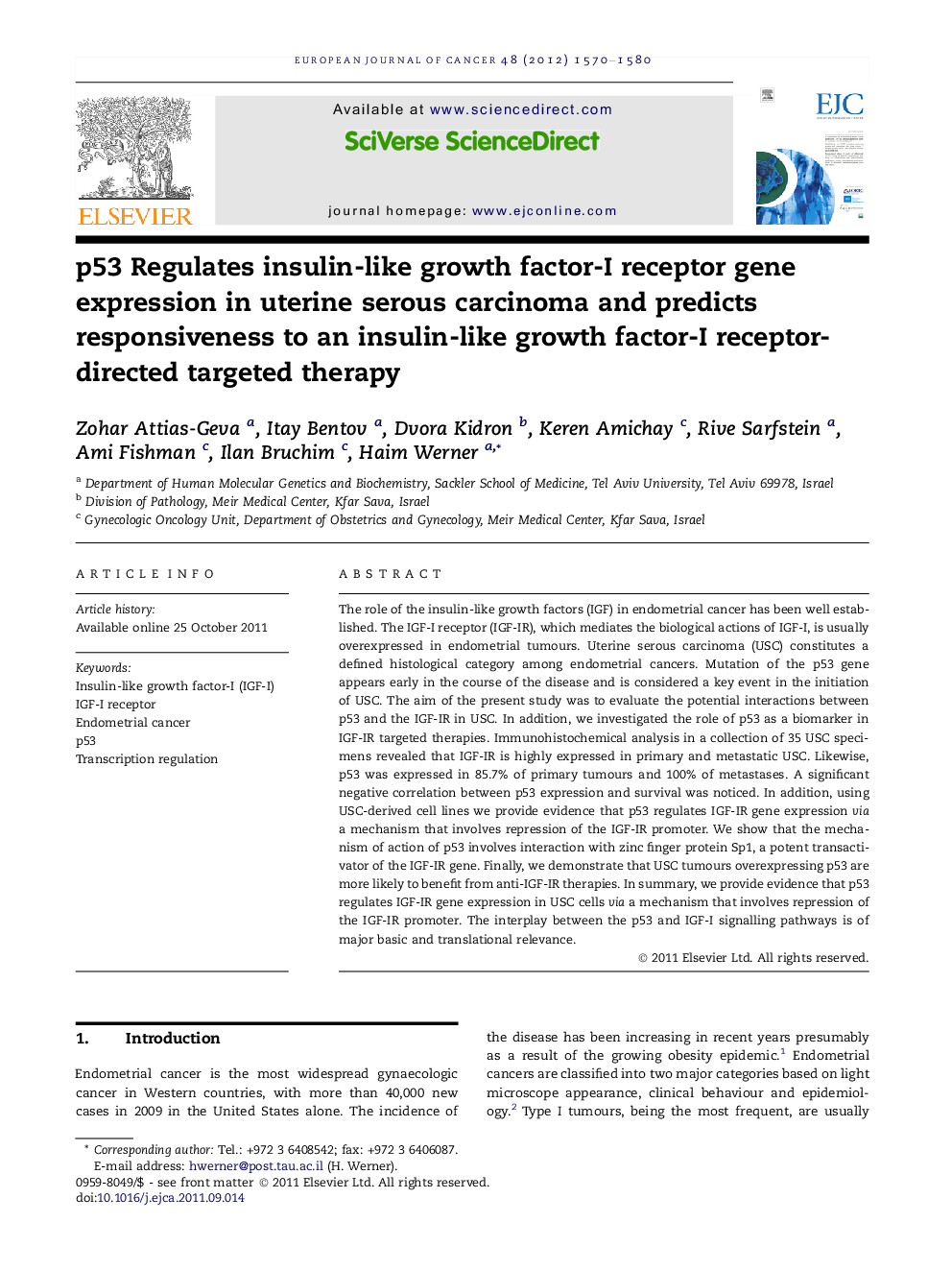| Article ID | Journal | Published Year | Pages | File Type |
|---|---|---|---|---|
| 2123657 | European Journal of Cancer | 2012 | 11 Pages |
Abstract
The role of the insulin-like growth factors (IGF) in endometrial cancer has been well established. The IGF-I receptor (IGF-IR), which mediates the biological actions of IGF-I, is usually overexpressed in endometrial tumours. Uterine serous carcinoma (USC) constitutes a defined histological category among endometrial cancers. Mutation of the p53 gene appears early in the course of the disease and is considered a key event in the initiation of USC. The aim of the present study was to evaluate the potential interactions between p53 and the IGF-IR in USC. In addition, we investigated the role of p53 as a biomarker in IGF-IR targeted therapies. Immunohistochemical analysis in a collection of 35 USC specimens revealed that IGF-IR is highly expressed in primary and metastatic USC. Likewise, p53 was expressed in 85.7% of primary tumours and 100% of metastases. A significant negative correlation between p53 expression and survival was noticed. In addition, using USC-derived cell lines we provide evidence that p53 regulates IGF-IR gene expression via a mechanism that involves repression of the IGF-IR promoter. We show that the mechanism of action of p53 involves interaction with zinc finger protein Sp1, a potent transactivator of the IGF-IR gene. Finally, we demonstrate that USC tumours overexpressing p53 are more likely to benefit from anti-IGF-IR therapies. In summary, we provide evidence that p53 regulates IGF-IR gene expression in USC cells via a mechanism that involves repression of the IGF-IR promoter. The interplay between the p53 and IGF-I signalling pathways is of major basic and translational relevance.
Keywords
Related Topics
Life Sciences
Biochemistry, Genetics and Molecular Biology
Cancer Research
Authors
Zohar Attias-Geva, Itay Bentov, Dvora Kidron, Keren Amichay, Rive Sarfstein, Ami Fishman, Ilan Bruchim, Haim Werner,
